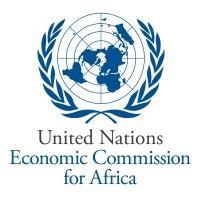
South Africa's women's minister seeks voice for women in AfCFTA
South Africa's Minister of Women, Youth and Persons with Disabilities, Ms Maite Nkoana-Mashabane, today called for women's voices to be heard in the implementation of the African Continental Free Trade Area (AfCFTA) agreement.
Ms Nkoana-Mashabane spoke during a virtual conference on leveraging the agreement to boost women's economic empowerment jointly organized by the African Trade Policy Centre (ATPC), a unit of the Economic Commission for Africa (ECA); and Business Unity South Africa (BUSA), a private sector organization.
The minister noted that women and young people remained among those most affected by the COVID-19 pandemic, highlighting the need for a gender-sensitive post-COVID-19 economic recovery. On inclusive AfCFTA implementation, the minister emphasized the importance of extending the benefits of the AfCFTA to both formal and informal sector women, disability and youth enterprises. 'This means that we must address issues of challenges in access to markets, provide skills development and training, provide appropriate education, increase opportunities to funding and credit, increase access and training in new technologies and provide marketing networks, said Ms. Nkoana-Mashabane.
It is therefore critical for women's voices to be taken onboard in the implementation of the trade pact, she said.
In his own remarks, the Coordinator of the ATPC, Mr. David Luke, said the conference was taking place one month after trading started under the AfCFTA treaty on 1 January when the world was grappling with recovery from the worst economic crisis for nearly a century.
The extent to which women will be able to take advantage of opportunities created through the AfCFTA agreement in priority economic sectors, in e-commerce and regional value chains is dependent on the design and implementation of gender-responsive policies and complementary measures that reduce discrimination toward women, while mitigating the potential risks from AfCFTA implementation.
During the panel discussions, other speakers dealt with the critical relationship between gender and AfCFTA Phase II issues of investment, competition policy and intellectual property rights, while exploring actions to support a gender-responsive AfCFTA trade facilitation agenda.
The outcome of the conference will be used to support the design of gender-responsive measures that will help to build back better in a post-COVID-19 economy, accelerating delivery on the 2020-2030 African Women's Decade of Financial and Economic Inclusion.
The AfCFTA promotes entrepreneurship and economic empowerment opportunities for women-owned businesses through increased access to new regional export markets and expanded opportunities across key sectors. With the exception of Eritrea, the remaining 54 member-countries of the African Union (AU) have signed the treaty establishing the AfCFTA among which 36 have ratified the agreement.

Legal Disclaimer:
MENAFN provides the
information “as is” without warranty of any kind. We do not accept
any responsibility or liability for the accuracy, content, images,
videos, licenses, completeness, legality, or reliability of the information
contained in this article. If you have any complaints or copyright
issues related to this article, kindly contact the provider above.
















Comments
No comment